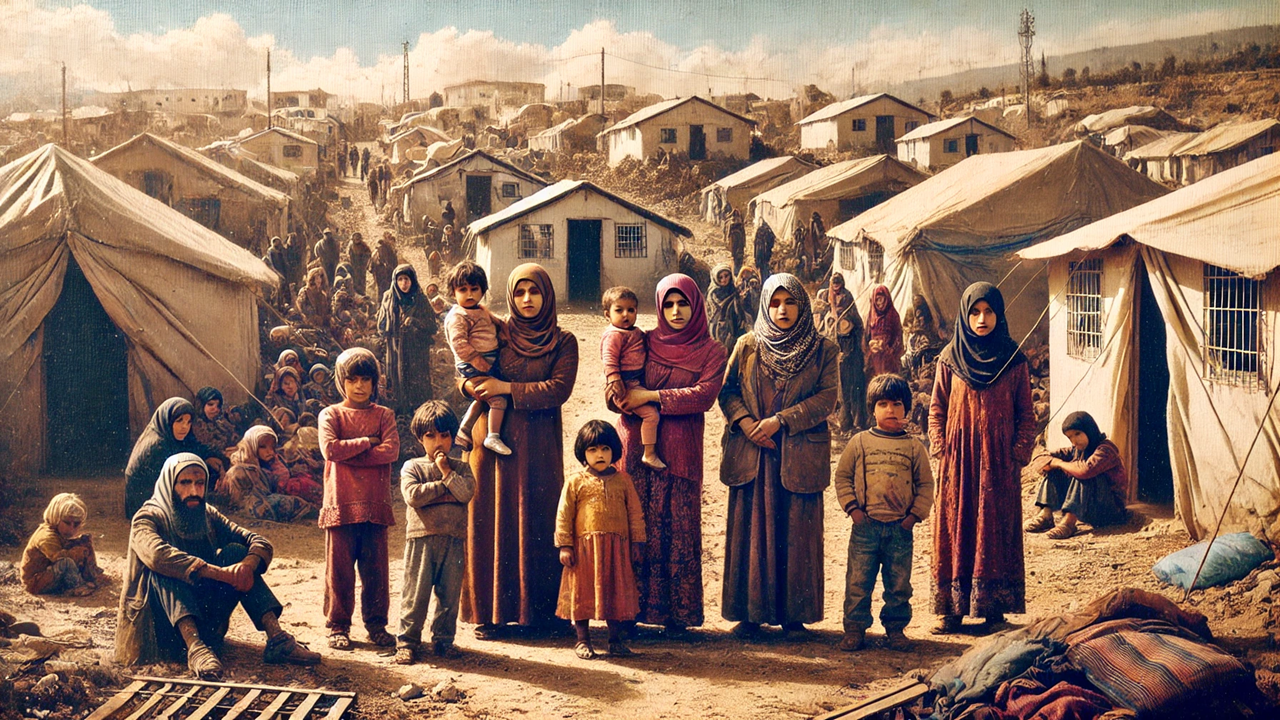Shifting the Narrative: How New Research is Redefining Forced Displacement
The UK-UNHCR-World Bank Building the Evidence on Forced Displacement Research Program reveals that forced displacement, affecting over 108 million people globally, is not just a humanitarian crisis but a developmental opportunity. Through seven years of research, the program highlights how inclusive policies and data-driven approaches can transform the experience of displaced populations and their host communities. As the world grapples with displacement, this report underlines the need for innovative solutions and continuous data collection to close the gap between policy and practice.

Shifting the Narrative on Forced Displacement
In an era where forced displacement has reached alarming levels, affecting over 108 million people by the end of 2022, it is time to shift the narrative. No longer can displacement be viewed solely as a humanitarian crisis. Instead, as emphasized in the Changing the Narrative on Forced Displacement: Findings from the UK-UNHCR-World Bank Building the Evidence on Forced Displacement Research Program, it is both a development challenge and an opportunity.
The findings from this comprehensive program, launched in 2016, serve as a wake-up call. The narrative must evolve for host countries, particularly in low- and middle-income regions where 76% of displaced populations reside. Rather than focusing on the burdens, policymakers are encouraged to see the long-term potential in inclusive and data-driven approaches that benefit both the displaced and their hosts.
Forced Displacement: A Crisis of Growing Proportions
The scale of forced displacement is staggering. The majority of displaced individuals, whether fleeing conflict, persecution, or violence, find refuge in countries already struggling with their socio-economic challenges. These communities, often lacking adequate resources, are forced to accommodate vast numbers of people, many of whom remain displaced for years. According to the report, two-thirds of refugees are stuck in long-term displacement, unable to return home or integrate fully into their host countries.
While global attention often fixates on the flow of refugees into affluent nations, such as the influx of Syrian and Ukrainian refugees to Europe, the reality is far different for most. Over 70% of displaced populations remain within their own countries or in neighboring regions with limited resources to support them.
However, the situation doesn’t have to remain dire with a more collaborative, data-driven approach. As the 2019 Global Compact on Refugees underscored, responsibility-sharing among humanitarian and development actors is key to addressing the multifaceted challenges of displacement. But the report acknowledges that significant gaps in data and research have hampered efforts to build effective, long-term solutions.
Filling the Gaps: The Power of Data and Research
To address these gaps, the Building the Evidence on Forced Displacement program launched an ambitious research agenda, to generate data that can inform policy and program development. What started as a collaboration between the World Bank and UNHCR quickly expanded into a global initiative with financial backing from the UK Government’s Foreign, Commonwealth, and Development Office (FCDO). By the program’s conclusion in 2023, the research spanned 144 studies across sectors including education, health, social protection, jobs, gender, and social cohesion.
One of the standout findings of the program is the critical role that data plays in shaping effective responses to displacement. Whether it is improving education access for displaced children, addressing mental health care needs, or supporting economic inclusion through job creation, the report makes it clear that evidence-based policymaking is crucial for success.
For example, the program’s impact evaluation in Afghanistan revealed that targeted support, such as the "Graduation" program designed to lift people out of poverty, had a profound impact on displaced households. The program saw a 20% reduction in poverty among participants and influenced policymakers to expand similar initiatives in other provinces.
Promoting Inclusion: A Shared Path Forward
One of the most pressing recommendations from the report is the need for inclusive policies that benefit both displaced populations and host communities. The research illustrates that these inclusive approaches are not only necessary to avoid tensions between communities but can also lead to significant social and economic gains for all parties involved.
In Brazil, for instance, research conducted through the program found that refugees contributed a net zero fiscal impact on local economies, debunking the myth that displaced populations are a drain on host communities. Refugees’ contributions to the local workforce and tax systems balanced out government spending. These findings have since shaped UNHCR’s policy dialogues with the Brazilian government.
The program also emphasizes the importance of improving social cohesion between displaced and host populations. Studies from Uganda, Ethiopia, and South Sudan show that when communities are given the tools to engage with one another, the potential for conflict diminishes, and social ties strengthen. From encouraging interactions between refugee and host children in schools to promoting inclusive labor market policies, these interventions pave the way for long-term stability.
Looking Ahead: Challenges and Opportunities
While the research program has achieved much, there is still work to be done. The report identifies key areas for future research, such as the environmental impact of displacement, the long-term mental health effects on displaced populations, and the intersection of climate change and forced migration. These are critical issues that need attention as the world continues to grapple with the growing crisis.
Ultimately, the Changing the Narrative on Forced Displacement report provides hope. It shifts the conversation from viewing displaced populations as a burden to recognizing the opportunities they bring. By harnessing data, investing in inclusive policies, and promoting social cohesion, there is potential to turn this global challenge into one of shared growth and development.
- FIRST PUBLISHED IN:
- Devdiscourse










